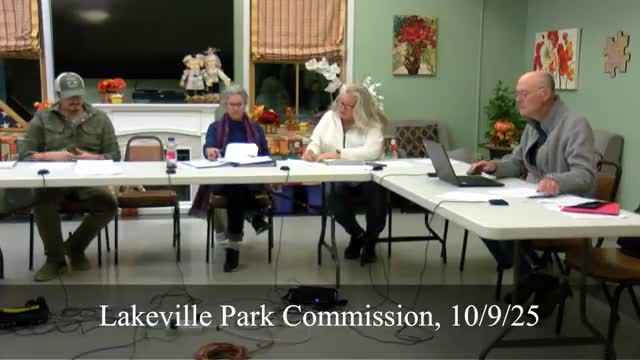Parks commissioners begin review of hybrid field-fee model after cost analysis shows shortfall
Get AI-powered insights, summaries, and transcripts
Subscribe
Summary
Commissioners discussed plans to analyze a hybrid pricing model (per-head plus hourly/impact fees) for field use after preliminary figures showed user fees recovering far less than estimated maintenance costs.
The Lakeville Parks Commission on Oct. 9 continued a policy discussion about revising field-use and league fees, directing staff to analyze a hybrid pricing model that combines per-player fees with hourly or impact-based charges.
Commissioners reported preliminary numbers: recurring porta-potty and hand-wash station rental and related maintenance estimated about $10,000 per year (two locations at $500 per month for 10 months), a seasonal staff salary estimate near $50,000, and additional unspecified maintenance, resulting in an approximate $60,000 annual cost tied to field operations. Current per-player charges and past receipts (the commission noted a figure of roughly $35,000 in collected field charges in a prior season) fall short of covering that estimated cost.
Commissioner discussion referenced how other towns structure fees: one treasurer, Brett Bourne, provided comparisons that included $60 per player charged by another jurisdiction, yielding $52,800 in that municipality. Commissioners noted local per-player fees were lower (the commission cited $25 per player in some Lakeville programs) and that responsibilities and town funding arrangements vary (some towns receive direct municipal funding or operate through enterprise funds or friends groups). Commissioners said they would gather the right data — total playable hours per season, actual hours requested by leagues, league sizes and demographics — and run models for hourly usage, hybrid models, tiered pricing or impact-cost recovery to understand distributional effects.
Preliminary spreadsheet work was presented as showing the hybrid model tends to compress the range of fees: some leagues would pay more under hybrid pricing and others less. Commissioners expressed interest in a phased rollout and sensitivity checks to avoid sudden large increases for families. They asked staff to refine the spreadsheet, apply it to softball and soccer schedules, and return with a deeper analysis and recommended implementation steps at a future meeting.
No fee schedule changes were adopted at the Oct. 9 meeting; commissioners directed staff to further analyze options and report back.
